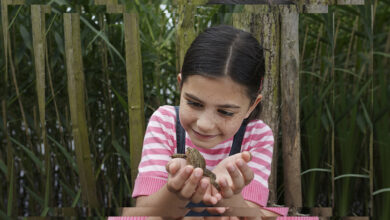Parenting
An Addiction-Free Lifestyle: It’s a Family Affair
Over a cup of coffee in a busy metropolitan café, Mike reflects on the time he received a phone call from his daughter’s high school, telling him that his 15 year old was being sent home for being severely drunk on a weekend school ski trip. The retired Warrant Officer felt like he had just been sucker-punched in the abdomen. Having lived in different communities throughout Canada, Mike was well aware that drugs and alcohol were readily available at many schools and in most teen communities.
He never suspected that his own teenage daughter would experiment with alcohol to the point of excess use. “I quickly came to the realization that I had never had an open and frank discussion with my daughter about alcohol use and the many pitfalls when not consumed responsibly. In retrospect, I should have had a talk with her earlier.”
Major findings from the Canadian Alcohol and Drug Use Monitoring Survey show that the majority of youth aged 15-24 (70.8%) reported consuming alcohol in the past year. One in five has also reported using cannabis in the past year. While there is a growing awareness in today’s society that alcohol and drug use can have serious health, social and legal implications, it is especially heartbreaking for parents when they realize their children are in the throes of alcoholism or addiction.
However, studies have confirmed, that early intervention by parents can prevent substance use. According to Deanne Chafe, Addictions Specialist with the Canadian Armed Force’s Directorate of Force Health Protection, “It is not uncommon for youth to experiment with alcohol and other drugs as part of growing up. A key role for parents is to start a healthy dialogue early on about the risks and consequences associated with use. “Talking about drugs and alcohol with your children strengthens family ties and makes kids more resilient. Serious problems related to alcohol and drugs are less likely to develop if youth are able to talk openly and honestly in a respectful and loving environment.
Top ten tips for an addiction-free family:
- Communication is the key to a healthy relationship. Communicating openly and frequently will help your children develop sound decision-making skills.
- Support is important! Develop a supportive environment within your family by showing love, listening to concerns, and being prepared to help when asked.
- Get the facts! If you don’t know the answer, say so and look it up together.
- Set the rules! A family works best when it sets rules and responsibilities for each member. Praise good behaviour.
- Be a good role model! The things you say and do can have a strong influence on other members of your family. Do not drink and drive.
- Everybody has feelings. Make time for all family members to share their thoughts and feelings about important things.
- Spend time together! When you share interest and activities, your family ties grow stronger.
- Don’t be afraid to raise the issue of alcohol and drugs!
- Watch for signs of substance use and address them early.
- Solve problems together! Use the combined strengths and skills of all family members to address important issues.
Military families can access support and services when facing difficult times. There are three access points to services including Military Family Resource Centres located on Bases and Wings for in person service, the Family Information Line at 1-800-866-4546 or online through www.familyforce.ca.
By Alice Piotrowski and Todd Stride
Sources
http://www.hc-sc.gc.ca/hc-ps/drugs-drogues/stat/index-eng.php









